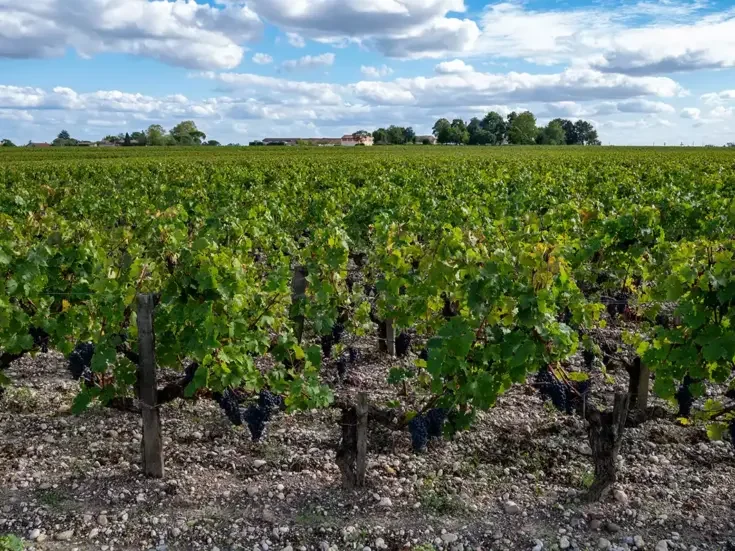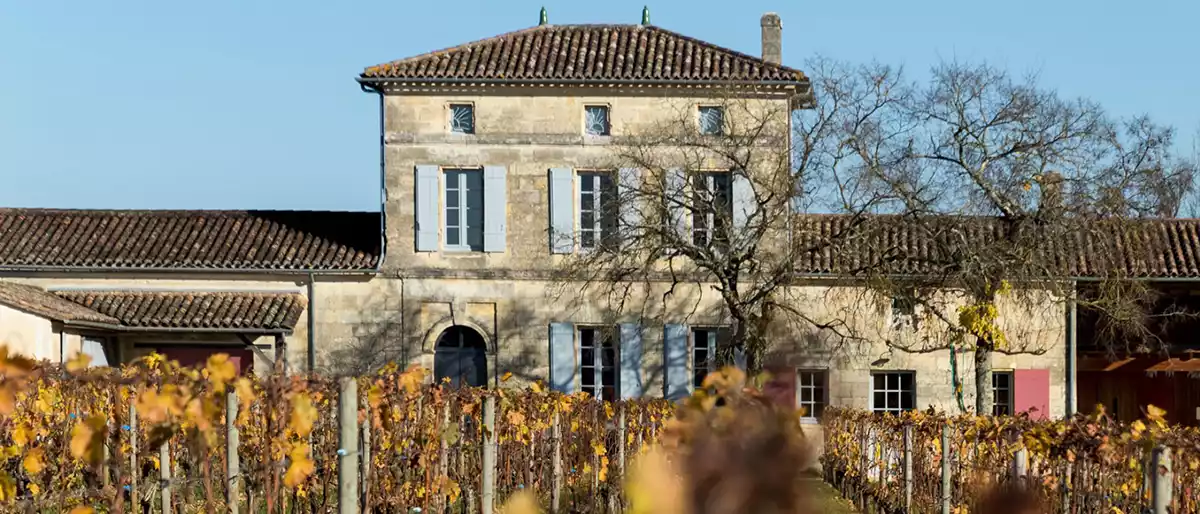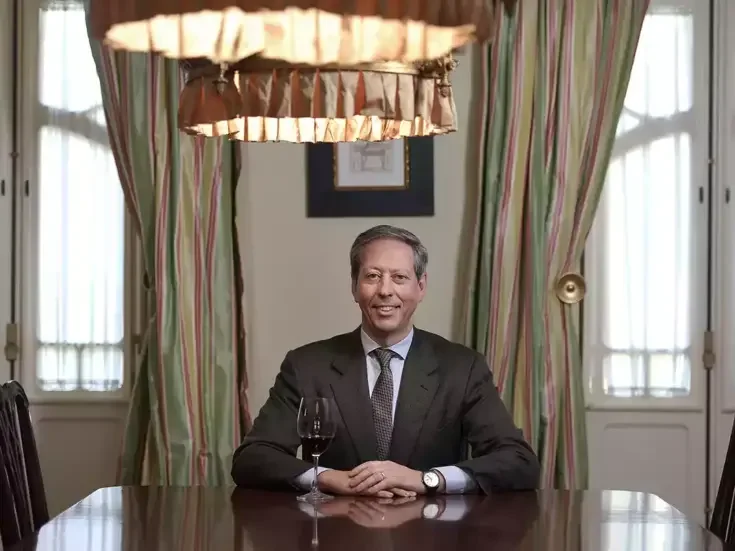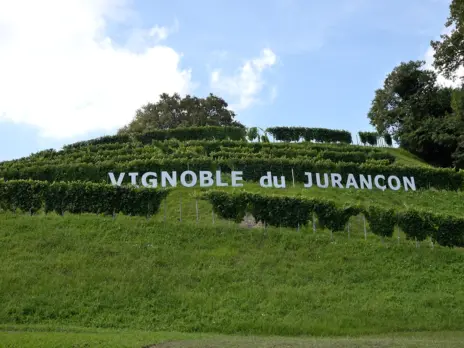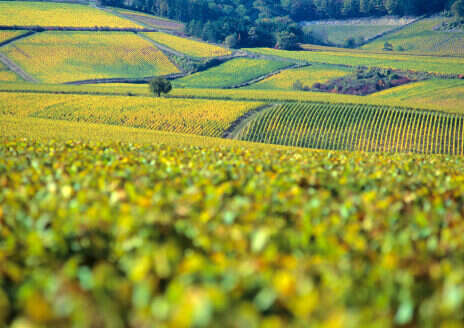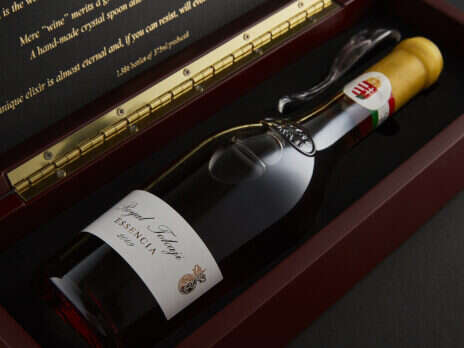My experience with Sir Roger Scruton started—as most philosophical journeys do— with a question. Broadly speaking, my question was about wine and life, and as a professional wine writer, I had researched, traveled, and tasted widely in search of an answer. Despite years of effort, my question still lingered. But by that stage, it was accompanied by a bloodless desire to have it answered.
Roger’s interest in wine was only part of his appeal. I was equally drawn to his belief in the importance of literature to philosophy, not only as its influence on expression but as a way to address the human condition. Much contemporary philosophy, he wrote, “ceased to address itself to living creatures.” I had a similar predicament with wine criticism; to understand wine objectively one was asked to remove the subject, but with the subject also went the meaning. In both cases, it seemed to me, something was missing.
And yet here was a philosopher on the other side of the world who wrote beautifully and made space for this realm, to say nothing of his way of teaching—a mixture of symposium-style lectures over dinner at the Reform Club in London and, if you were fortunate enough to be supervised by him, tutorials at Albany in Piccadilly. Crucially, Roger was the only person who not only understood my question but also seemed to know what to do about it. I still can’t think of a less practical thing to do, but several years after discovering his work I left a life in Melbourne and moved to London to seek the answer to my question.
Back to the originals
Roger taught in a way that is, I am told, now rarely used: the old Oxbridge method. You wrote him an essay, and he found the holes in your arguments, pulled down the decorations, and then, without explicitly saying so, turned you where you needed to go next.
“Write,” he said after assigning some essay topics. And so I started offering timid essays that we discussed in his London flat at the top of Albany, a flat that looked just as you’d imagine a philosopher’s flat to look anytime from the past century. “You’re still homing in,” he’d say. “Keep writing.”
Roger also believed you didn’t know anything until you could argue it on a page—which, like many things he believed, turned out to be true. In my mind, I would set out as some intellectual warrior sent back in time to retrieve an important idea from philosophy but, somewhere along the way, turned into a confused spaniel who came back with nothing but a wet stick from under the neighbor’s house. And yet, dedicated as he was to his students’ education, Roger still looked it over and offered encouragement before making his diagnosis: “Back to the originals. Read Plato.” And with that, he sent me tumbling back 2,000 years through the history of ideas.
Rising above
Seasons change rapidly in London, and as autumn retreated from town, and darkness claimed its larger share of the day, Roger was appointed to a government advisory commission into new building, whereupon by “the Twitter mob” (as he called them) did their worst. That, and the more damaging media hounding the following year, have been well documented; suffice to say we watched in disbelief as he was put on trial by many who had never heard of him nor read a word he had written.
The next day, following another tutorial, I walked with Roger from Piccadilly to Pall Mall to attend his scheduled lecture and dinner on Kant. Roger seemed as grand as the buildings on Piccadilly, and when he broke into his stride it was as though someone had animated a statue. As his jacket flapped behind him, he carved his way between the red buses and black cabs in giant defiant strides with which I could barely keep up. Discussing the poison on the Internet, I asked him what the hardest thing was. “The hatred,” he replied.
Despite the ordeal, Roger delivered the lecture to his 14 students, enthusiastically answered questions over dinner and wine, and then, as was his occasional custom, joined us for a drink in St James’s. When the conversation inevitably turned to the media, someone jokingly mentioned vengeance. It would have been easier to laugh it off, but ever the exemplar of decency, Roger gently snuffed out the idea: “No, one should never respond to hatred with hatred.”
Two great lessons
As Plato depicted in Book VII of The Republic, there is a time in every student’s philosophic journey when they want to turn back. “And, if he compelled him to look at the light itself, would his eyes hurt and would he flee, turning away to those things that he is able to make out and hold them to be really clearer than what is being shown?” asked Socrates of his student in the Allegory of the Cave, Plato’s depiction of the philosophic quest from sense perception to intellection of the highest good.
For many years, I had held to an idea about wine following a profound tasting experience, an idea that had hovered like a lodestar and certain aspects of which, with Roger’s guidance, I was beginning to doubt. If I had left a life in pursuit of an illusion, and there was a question over the extent to which the meaning of life could be found in a glass of wine, I, too, began to wonder if I should not turn back.
During these times, I often met with two other people who were studying the philosophy of religion and the philosophy of opera. With the first, we discussed questions of life, faith, and meaning over red wine by a fire in Soho. With the second, counsel was also sought in our philosophical interests.
One damp winter’s night, following a glass of wine, we took our seats at the Royal Opera House in Covent Garden to watch Verdi’s La Traviata. During the final scene—in which Violetta sings farewell to her “lovely, happy dreams of the past” and is then reunited on her deathbed with her beloved just long enough to sing a heart-rending duet before rising to her feet and dying—my friend, without taking his eyes off the stage, lent sideways and whispered, “Too much?”
It wasn’t, of course; it was perfect—if not in narrative accuracy, then certainly as a consolatory gesture. For here were two of Roger’s great lessons in the analysis of aesthetic value. First, it is here in high culture that we inherit a body of emotional and moral knowledge on which we can draw to celebrate, comprehend, and console our shared human condition. And second, because wine is neither a “representative” or “expressive” medium as the terms apply to art, it cannot intrinsically carry a meaning in the same way that works of art can, two of the privileges claimed for art and so often claimed in the aesthetic value of wine—an idea we had quarreled with for weeks. There was meaning to be found in wine—just not where I had ‘seen’ it. As a wine writer, it was an inconvenient distinction. As someone in pursuit of the good life, it was liberating.
The seeds of human happiness
By the time spring arrived to brighten London, I had taken a sabbatical from my wine columns to focus on the thesis and to navigate my way around my new views on wine. Opinions once firmly held dissolved into nothing, and fissures patched together with an “and,” a “thus,” or a “therefore” gaped open to reveal distinctions as profound as those that separate tectonic plates. “Wine vividly reminds us that thoughts might be connected by association,” wrote Roger, “even if not by logic.”
I slipped away from the wine-tasting circuit and wandered instead through what Roger described as “the thin topsoil where the seeds of human happiness are sown”: art, literature, philosophy, and music. As sure as a new layer of life was springing from the earth, so, too, was a new layer of meaning growing on top of it.
“A quantum leap,” Roger said one day at Albany, after looking over another 10,000 words and then looking back at me, perhaps to check I was the same person, before moving onto his tutorial, which, in complete, perfect paragraphs, included enough wisdom for a lifetime of enquiry and showed me that, no matter how much progress I made, Roger would always remain out in front, leading me toward a better, more beautiful realm of the world.
Not as flesh but as spirit
Roger’s cancer diagnosis was announced at the beginning of last summer, but despite the news and his treatment, his dedication to his work and to his students was an inspiration. Roger continued to offer clues in response to drafts: “Don’t spend too long here”; “this is good”; “crucial—expand.” Not only was there was a new foundation upon which to explore the world, there were new realms of it to discover as well.
In November, Roger was awarded the Silver Medal by the Czech parliament in Prague for his work supporting dissidents during Communist rule, one of many accolades awarded to him during these months. He was hard to place in the photos at first; his wild nest of hair was gone, and his giant stride was now assisted by a cane. And yet he was recognizable by his smile, the gesture he so often noted when positioning the person as a subject.
This distinction between body and person was central to Roger’s philosophy. We are not just bodies, as “trivializing science” would have us believe, but subjects, and it is as subjects that we relate to each other and build a meaningful world in which we belong, a world enshrined in conceptions such as beauty, goodness, and spirit, and “concepts like that of the person, which have no place in science but that describe what we understand, when we relate to the world as it truly is for us.” For Roger, one such gesture in this world of meaning and reasons was a smile, which we see “not as flesh but as spirit, freely revealed.”
That same November day, I received my thesis result, so I wanted to write to thank him for so many things, not least because, despite years of enquiring, I had never met a wiser, kinder, more fearless soul. Although I left him to the more important ceremonies, it was testament to his generosity that Roger wrote me a note the following day, saying, “You are now free to advance to the next conquest.”
Many reflecting on their time with Roger recognize how much more he had to give, how deeply he will be missed, and how many questions we still want to ask him. I can draw some small consolation by imagining that now, as much as ever, Roger is still out in front, leading us toward a better, more beautiful realm of the world.
Andrea Frost is a World of Fine Wine columnist, author and the Louis Roederer International Wine Columnist of the Year. In 2018, Andrea moved from her native Melbourne to London to undertake an MA in Philosophy with Sir Roger Scruton on the philosophy of wine, which she passed with distinction. Andrea now lives in London.
